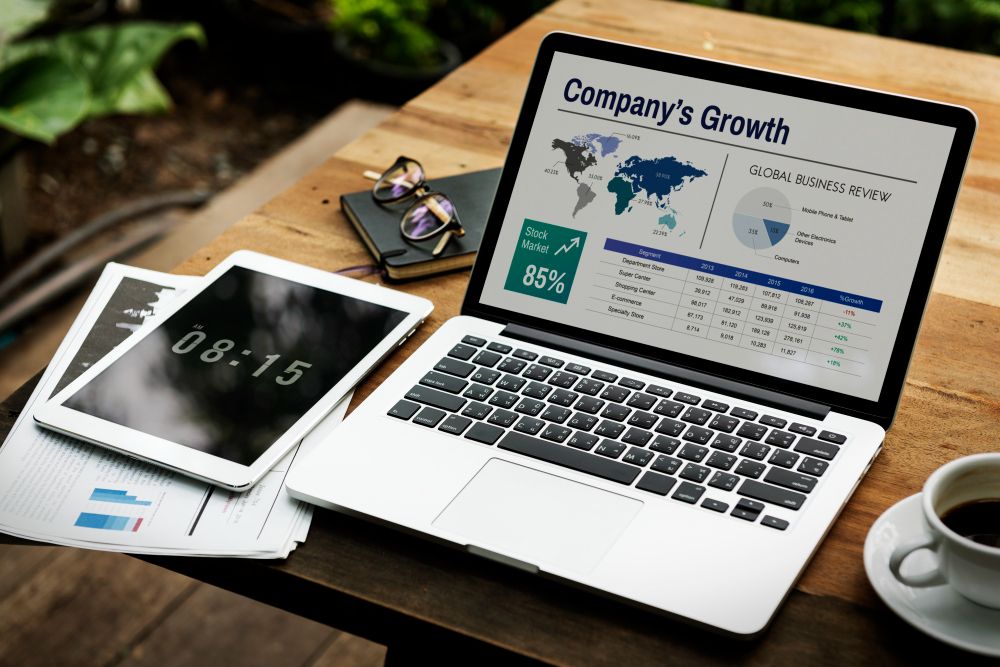Paid Ads vs. Organic Marketing: Which Should Your Business Use?
Choosing between paid ads and organic marketing doesn't have to be an either/or proposition. Ultimately, the most effective strategy usually involves a balanced combination of both paid and organic efforts.

Digital marketing strategies are essential tools for boosting visibility and driving consumer engagement. Among these strategies, the choice between paid ads and organic marketing forms a crucial decision point for businesses. Each approach offers distinct benefits and can be leveraged in various ways depending on a company's goals, budget, and timeline. Understanding the strengths and limitations of each method is key to determining which will most effectively meet your business's needs.
Paid advertising is like a turbo boost for your brand's visibility, offering precise targeting and immediate results. It allows businesses to appear right where potential customers are looking, whether that's on search engines, social media, or other digital platforms. This method is particularly effective for short-term campaigns where quick visibility can lead to rapid gains in traffic and sales.
Also Read: Paid Ads vs. Organic Marketing: Which Should Your Business Use?
On the other hand, organic marketing involves a more gradual process of building relationships with potential customers through content that educates, entertains, or informs. This approach not only enhances your brand's credibility but also fosters a deeper level of engagement with your audience. Over time, this can lead to increased brand loyalty and customer retention, benefits that are less immediately apparent but equally valuable.
Comparing Paid Ads vs. Organic Marketing
1. Cost-Effectiveness
Paid advertising requires a significant budget allocation to maintain visibility in the marketplace. It involves costs per click, impression, or acquisition, which can accumulate quickly, especially in competitive industries.
On the other hand, organic marketing generally requires less direct expenditure. It relies on creating content, such as blog posts, videos, and social media activities, which primarily demand time and creativity rather than financial outlay. However, organic growth is slow, and scaling it often requires a sustained effort over a long period. In the long run, organic marketing can provide a higher return on investment (ROI) as it builds a loyal customer base.
2. Targeting and Immediate Results
Paid ads offer precise targeting options, including demographics, interests, behaviors, and retargeting capabilities that allow businesses to reach specific segments of the market effectively. This precision can lead to immediate results, such as increased traffic and sales, which are measurable and can be optimized in real-time for better performance.
Organic marketing, on the other hand, appeals to a broader audience. Its impact is less immediate as it takes time to build SEO rankings and a loyal following. However, it has the advantage of reaching an audience that has a genuine interest in the content, leading to better engagement rates.
3. Credibility and Trust
Organic marketing often enjoys a higher level of trust and credibility among consumers. Content that ranks high on search engines or is shared frequently on social media is generally perceived as more authoritative and trustworthy than sponsored ads.
People tend to skip ads, but they seek out organic content for solutions, which establishes a stronger relationship with the audience. Paid advertising, despite its visibility, may be viewed with skepticism by some users who are aware of its promotional nature, which can affect the perception of authenticity and trustworthiness.
4. Longevity and Visibility
Paid ads operate on a pay-to-play basis, meaning once you stop funding the ads, the visibility is gone. This creates a dependency on continuous investment to maintain presence in the market.
Organic marketing efforts, like SEO and social media engagement, build a foundation that can sustain visibility over a longer period. High-quality content can continue to attract visitors to your site for months or even years after it is first published, providing a lasting value that paid ads cannot match.
5. Flexibility and Content Engagement
Paid advertising provides excellent flexibility in terms of campaign adjustments based on performance analytics. Advertisers can swiftly change their messaging, audience targeting, and budget allocation to optimize their campaigns effectively. This agility helps businesses respond to market trends and changes in consumer behavior.
Organic marketing is less flexible as content takes time to produce and may not be easily adjustable once it is published. However, engaging content fosters deeper connections with the audience. Users are more likely to share and discuss organic content, which can enhance brand loyalty and support conversion rates over time.
Which Should Your Business Use: Paid Ads or Organic Marketing?
Deciding whether your business should focus on paid ads or organic marketing depends largely on your specific needs and circumstances. If you require quick results, such as during a product launch or a promotional event, paid ads are the way to go. They provide immediate visibility and traffic, allowing you to reach a targeted audience quickly. This is particularly beneficial for new businesses or those entering a competitive market who might not have the luxury of time to build organic reach.
On the other hand, if you are aiming for long-term stability and want to cultivate a loyal customer base, organic marketing is indispensable. It helps build credibility and trust through high-quality content that resonates with your audience. Over time, this not only enhances your brand's authority but also improves customer engagement and retention. Moreover, the return on investment for organic marketing often increases as your brand's visibility grows naturally, without the recurring costs associated with paid ads.
There are several ways to maximize organic marketing for your business, with contests and giveaways arguably the most effective since they appeal to human nature's desire to win. Contests and giveaways generate direct traffic by requiring participants to execute a series of specified actions, resulting in organic traffic for your business.
One way to successfully launch and execute a contest and giveaway campaign for organic growth of your business is to use an online giveaway tool like Giveaway.com. Giveaway.com is a powerful marketing platform that allows you to create giveaway campaigns to improve user interaction and promote your business.
Giveaway.com streamlines the process, making it easier to manage these campaigns by automating the activities from participant registration to winner selection, resulting in a seamless and successful marketing campaign.
Click here to create a giveaway page that drives organic growth to your business.
Ultimately, the most effective strategy usually involves a balanced combination of both paid and organic efforts. Using paid ads to supplement organic growth can help accelerate your reach and visibility, providing a holistic approach to your digital marketing strategy.
Conclusion
Choosing between paid ads and organic marketing doesn't have to be an either/or proposition. Most businesses benefit from a strategic combination of both. Paid ads offer a quick boost and precise targeting options, making them ideal for specific campaigns and immediate needs. Meanwhile, organic marketing provides a sustainable build-up of your brand's presence and credibility, which can lead to enduring success.




